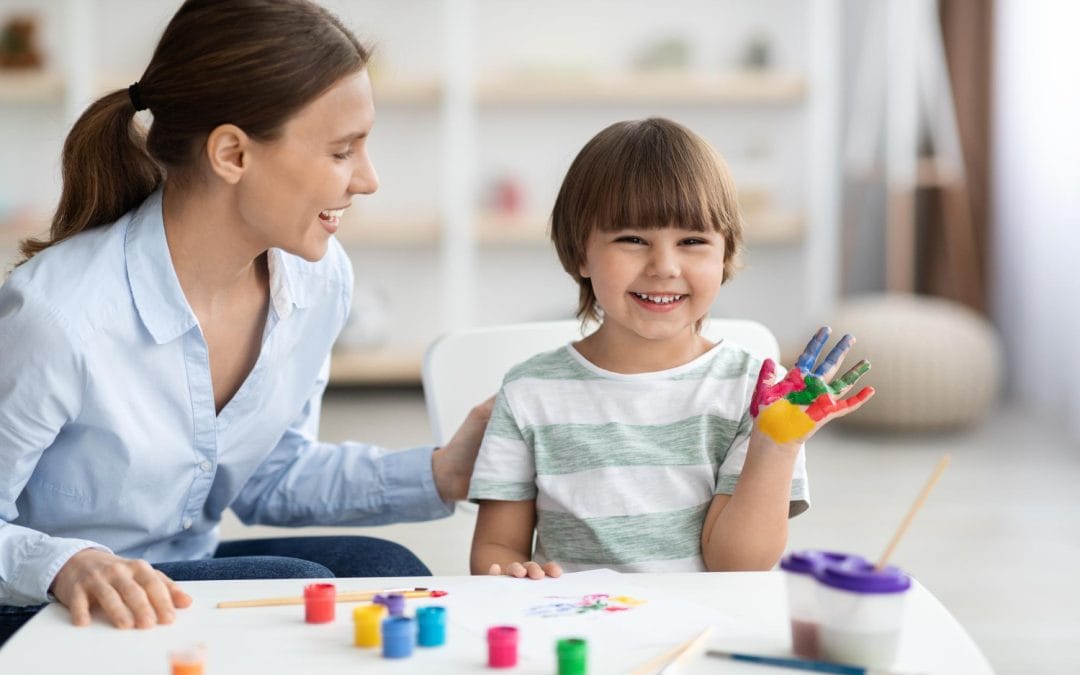Children aren’t always able to say “I’m anxious” or “I’m overwhelmed.” Instead, they act out, withdraw, or regress—and as parents, teachers, or pediatricians, it can be tough to know what’s really going on. That’s where play therapy steps in.
At O’Neill Counseling, we believe play is a child’s most instinctive and authentic form of communication. Through toys, storytelling, drawing, and games, children can express what words sometimes can’t. For kids experiencing trauma, behavioral issues, or anxiety, play therapy becomes more than just play—it becomes healing.
What Is Play Therapy, Exactly?
Play therapy is a research-backed therapeutic approach designed to help children process complex emotions and navigate tough life events. Led by licensed therapists trained in child development, sessions are structured around age-appropriate play activities that feel natural to children—but have a deeper purpose.
Kids use toys, art, or role-playing scenarios to “act out” feelings they may not even understand yet. This allows them to:
- Explore emotions in a safe, non-threatening way
- Learn problem-solving and coping skills
- Build trust with the therapist
- Gain a sense of control and resilience
According to the Association for Play Therapy, this approach has shown positive outcomes in reducing anxiety, improving behavior, and enhancing emotional intelligence in children as young as three.
Who Benefits From Play Therapy?
Play therapy can be incredibly effective for children facing a variety of emotional or behavioral struggles. It’s often recommended for kids dealing with:
- Anxiety or depression
- Emotional trauma (like divorce, abuse, or grief)
- Aggression, defiance, or tantrums
- Social withdrawal or isolation
- ADHD or impulse control issues
- Difficulty with peer relationships
- Developmental delays or learning differences
Through consistent sessions, children may experience:
- Increased emotional regulation
- Improved self-esteem and confidence
- Enhanced communication and social skills
- A significant drop in disruptive or aggressive behaviors
It’s not a one-size-fits-all solution—but when guided by a skilled therapist, it can be transformative.
How to Spot When a Child Needs Help
Sometimes it’s easy to brush off mood swings or behavioral hiccups as “just a phase.” But persistent or worsening signs could signal deeper emotional struggles.
Here are some red flags teachers, parents, and doctors should watch for:
- Sudden changes in mood or school performance
- Frequent tantrums, aggression, or defiance
- Withdrawal from friends or previously loved activities
- Trouble focusing or sitting still in class
- Recurring nightmares or sleep disturbances
- Regression (e.g., bedwetting, clinginess, thumb sucking)
Don’t wait for things to spiral—early intervention matters. Referring a child to therapy at the first sign of distress can make a huge difference in their emotional development and future mental health.
What Makes O’Neill Counseling Different?
At O’Neill Counseling, our child therapy services go beyond standard approaches. We blend proven therapeutic techniques—including play therapy, art therapy, trauma-informed care, and even EMDR (Eye Movement Desensitization and Reprocessing)—to tailor treatment for each unique child.
What We Offer:
- Safe, child-friendly spaces in Irvine and surrounding areas
- Licensed counselors trained in child psychology and trauma care
- Individual play therapy sessions for ages 3–12
- A new Art Therapy Group for kids ages 6–12 that combines creativity with emotional learning
- Holistic support for families navigating stress, loss, or behavioral diagnoses
We don’t just treat symptoms—we help kids understand their emotions, grow their strengths, and find their voice.
FAQs About Play Therapy
Is play therapy only for young children?
Primarily, yes. It’s most effective for ages 3–12, but certain methods can be adapted for teens using creative modalities like drama or expressive arts.
How many sessions are typically needed?
It varies. Some children benefit from short-term work (6–12 sessions), while others may need longer support depending on the complexity of their experiences.
Will I be involved in my child’s therapy?
Absolutely. We provide parent consultations and updates to ensure families are part of the process and equipped to support their child at home.
Let’s Start Healing—One Session at a Time
Watching your child struggle emotionally or behaviorally can be heartbreaking—but you’re not alone, and help is available. At O’Neill Counseling, we’re here to guide your family through it with compassion and expert care.
Ready to take the first step? Call us at (657) 500-1441 or visit our website to learn more about play therapy services and group sessions.
Let’s help your child rediscover joy, confidence, and peace—through the power of play.
Useful Resources
- Association for Play Therapy
- Child Mind Institute – Behavior Problems in Children
- National Institute of Mental Health – Children and Mental Health

Karen Majdalani, LMFT (Lic. #132761) holds Master’s degrees in Psychoanalysis and in Marriage and Family Therapy, and has been practicing since 2015. She co-founded O’Neill Counseling with Sean O’Neill to provide affordable, insurance-based therapy for families, children, teens, and couples in Orange County. At O’Neill Counseling, she leads a team of associate therapists with diverse expertise, including trauma recovery, EMDR therapy, anxiety and depression treatment, and child and adolescent disorders. Karen is passionate about creating a safe and supportive space for growth, healing, and connection.

